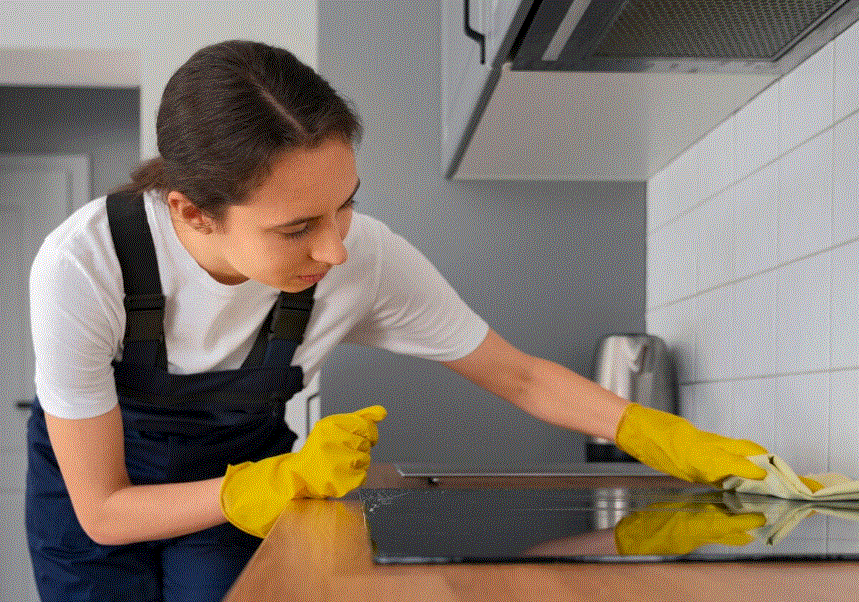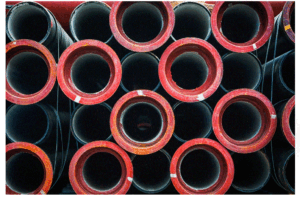Commercial kitchens are dynamic, bustling environments where chefs and staff work tirelessly to create culinary masterpieces. However, with the hustle and bustle of the kitchen, grease, and cooking fumes accumulate quickly. These residues find their way into the kitchen’s exhaust system, especially the hood, and pose a significant fire hazard. The importance of regular commercial hood cleaning cannot be overstated when it comes to ensuring fire safety in your restaurant or commercial kitchen. In this comprehensive guide, we will explore the critical role that commercial hood cleaning plays in preventing fires, protecting your business, and maintaining a safe workplace for employees.
The Fire Hazard in Commercial Kitchens
Commercial kitchens, where high-temperature cooking and frying are routine, are at a higher risk of fires due to the presence of flammable materials such as cooking oils and greases. Grease-laden vapors released during cooking can accumulate in the kitchen’s exhaust system, forming a highly combustible layer on surfaces, especially in the hood and ductwork. This layer of accumulated grease can lead to catastrophic fires, which can result in:
Property Damage: Fires in commercial kitchens can cause extensive damage to the building, including equipment, structures, and inventory.
Business Interruption: A fire can lead to temporary or even long-term closure of the kitchen, causing revenue loss and impacting the livelihoods of employees.
Health and Safety Risks: Fires put employees and customers at risk of injuries, smoke inhalation, and burns. The aftermath of a fire often includes water and smoke damage that can exacerbate health hazards.
Legal Consequences: Negligence in maintaining a safe kitchen environment can lead to legal liabilities and financial penalties.
Reputation Damage: A fire incident can tarnish the reputation of the business, affecting customer trust and loyalty.
Understanding the Commercial Kitchen Hood
The kitchen hood, or exhaust hood, is a vital component of the kitchen’s ventilation system. Its primary functions are to remove heat, odors, and cooking by-products, and to capture grease-laden vapors generated during cooking. The hood works in conjunction with the exhaust fan and ductwork to carry these elements out of the kitchen and into the external environment.
The importance of the kitchen hood in fire safety cannot be overstated. When not properly maintained, the accumulation of grease in the hood and ductwork increases the risk of fire, as grease is highly flammable and can ignite with a simple spark.
Common Mistakes in Commercial Hood Cleaning
Inadequate Cleaning Frequency: Many establishments make the mistake of not cleaning their hoods frequently enough. The frequency of cleaning depends on the volume and type of cooking, but a lack of regular cleaning can lead to a dangerous buildup of grease.
Superficial Cleaning: Some cleaning services perform only superficial cleaning of hoods, which often involves cleaning the visible parts while neglecting the internal components, where grease can accumulate.
Ignoring Ductwork Cleaning: Neglecting to clean the entire exhaust system, including the ductwork, allows grease to remain hidden, increasing the fire risk.
Using Untrained Staff: Cleaning hoods properly requires specialized knowledge and equipment. Employing untrained staff or attempting DIY cleaning can lead to inadequate results and safety risks.
Not Following Industry Standards: Commercial hood cleaning should follow industry standards and regulations to ensure thorough and safe cleaning practices. Non-compliance can result in safety hazards and legal issues.
Focusing Solely on Aesthetics: Some businesses prioritize the appearance of the hood over its functionality. While a clean hood looks good, the real purpose of cleaning is to remove grease buildup and prevent fires.
Neglecting Regular Inspections: Regular inspections of the hood and exhaust system are essential to identify maintenance needs, potential problems, and fire risks. Neglecting these inspections can result in overlooked issues.
The Importance of Professional Commercial Hood Cleaning
Professional Restaurant Hood Cleaning is essential for maintaining fire safety in a commercial kitchen. These services offer several advantages:
Compliance with Regulations: Professional cleaners are well-versed in local regulations and industry standards, ensuring that your kitchen remains in compliance with safety and hygiene requirements.
Thorough Cleaning: Trained technicians use specialized equipment and cleaning agents to remove grease buildup from all components of the hood and exhaust system, leaving no hidden fire hazards.
Increased Efficiency: A properly cleaned hood and exhaust system function more efficiently, which can reduce energy consumption and operating costs.
Fire Prevention: Regular professional cleaning significantly reduces the risk of kitchen fires, protecting property, employees, and customers.
Longevity of Equipment: Proper maintenance prolongs the lifespan of your kitchen equipment, including the hood, which saves money on replacements.
Comprehensive Inspections: Professional cleaning services often include thorough inspections, identifying potential issues, and ensuring the safety of your kitchen.
Peace of Mind: Knowing that your kitchen is in compliance with safety regulations and fire hazards are minimized provides peace of mind to restaurant owners and managers.
The Commercial Hood Cleaning Process
Professional commercial hood cleaning services typically follow a structured process to ensure a thorough and safe cleaning:
Pre-Cleaning Inspection: Technicians assess the condition of the hood and exhaust system, identifying areas that require attention and noting any potential issues.
Preparing the Kitchen: The kitchen is prepared for cleaning, including covering equipment and surfaces to protect them from cleaning agents and grease.
Cleaning the Hood Interior: Technicians begin by cleaning the interior of the hood, removing grease buildup, and ensuring that no fire hazards remain.
Cleaning Ductwork: The entire exhaust system, including the ductwork, is cleaned to eliminate hidden grease deposits and potential fire risks.
Cleaning Fans: Exhaust fans are cleaned and inspected to ensure they operate efficiently and safely.
Final Inspection: After cleaning, a final inspection is conducted to confirm that all components of the hood and exhaust system are free of grease and other fire hazards.
Certification: Once the cleaning is complete, the cleaning service provides a certificate of compliance, which can be essential for insurance purposes and regulatory compliance Sump Pit Cleaning.










